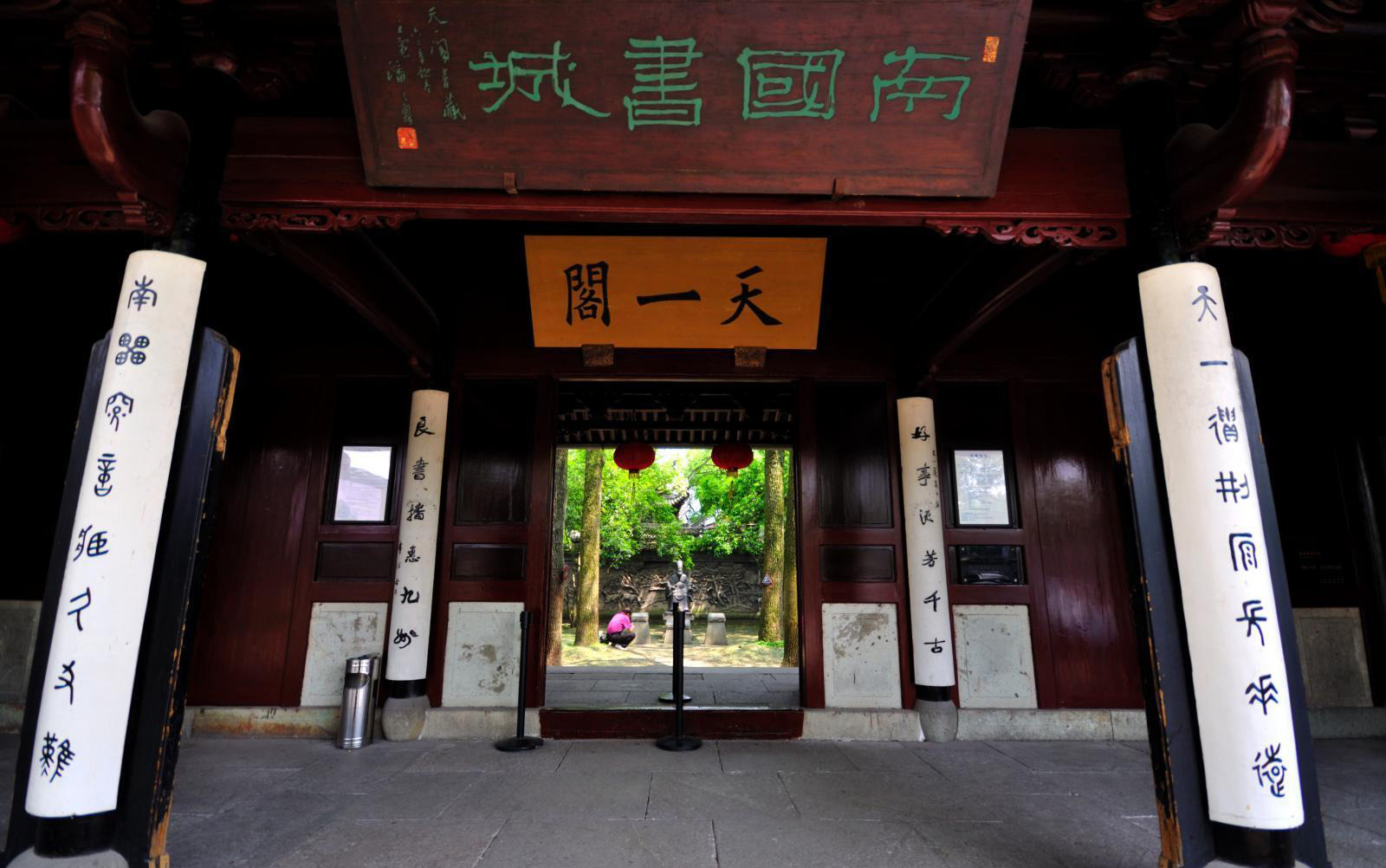Private collections help to preserve classics

Tianyige Library, situated in Ningbo of Zhejiang Province, is the earliest existing private library in China.
In China, the private collection of books has a long history. This form of collection is essential to preserving the legacy of academic classics. As reading habits increasingly trend toward digitization and segmentation, is it still necessary to read academic classics? What’s the point of preserving and transmitting academic classics? These are the topics discussed among scholars from several universities nationwide at the “Symposium on Production and Inheritance of Academic Classics and Publication of South Lake Library Chronicle” taking place in Yueyang, Hunan Province.
Knowledge innovation
Niu Dayong, a history professor from Peking University, listed three elements for the concept of “academic classics.”
The first is innovation. Niu explained that the innovative part of academic classics is their establishment of new knowledge systems, which can be new fields of research, disciplines, or thinking patterns. Academic classics also have the ability to develop new methods and directions for academic research. They innovate knowledge systems while advancing knowledge within existing systems by reinterpreting accumulated ideas to offer new directions to academic research, Niu said.
The second element of academic classics Niu put forth relates to their functions. Academic classics exhibit prominent functions of summarization, abstraction and integration. For example, the Siku Quanshu, or Complete Library in Four Branches of Literature, is the complete collection of knowledge and library of the Qing Dynasty (1636-1912), Niu said.
The third element is staying power. The development of human knowledge is a process of permanent accumulation, Niu said. Accumulated academic literature can become the basis for new knowledge. Those works that made a great splash when they were released but subsequently vanished from history are not worthy of being called academic classics.
National consciousness
Private collection is defined in opposition to official collection. It became prevalent during the Tang (618-907) and Song (960-1279) dynasties. The Four Private Libraries—in Changshu, Jiangsu Province; Liaocheng, Shandong Province; Huzhou, Zhejiang Province, and Hangzhou, Zhejiang Province—in the late Qing Dynasty are now cultural landmarks.
Today, economic and cultural development has created unprecedented opportunities for private collection. Many modern private libraries, like the “West Garden Library” built by famous Chinese collector Wei Li and “South Lake Library” built by Chinese writer Yu Sanding and his wife Zhu Pingzhen, are playing an important part in people’s cultural lives. They are also name cards of a city.
Scholars pointed out other functions of private collection: reading and collecting classics can lead to self-betterment and can also enhance national consciousness.
They also contended that private collections reflect the strong personal preferences of the collectors, giving private collections a particularity that sets them apart from official libraries. For example, the Biqu Library built by Fu Xihua, a deceased collector as well as an expert of classical documents and folk literature, mostly houses precious and rare books of traditional operas. In the South Lake Library, there are mostly academic publications on literature, history and philosophy.
Complementary manuscripts
Scholars agreed that in an information age, the major carriers of classics are still books. Therefore, while carrying on the tradition of private collection, we should make innovations in this respect.
“The current era is still producing classics,” said Wang Xianpei from the School of Chinese Language and Literature at Central China Normal University, adding that the development of literature in the past 30 years has been promising.
The key to further developing private collection is to combine this career with the collectors’ interests, expertise and local characteristics. This is where ordinary people can make a contribution to preserving the legacy of academic classics.
Niu pointed out that manuscripts are important sources for understanding the thinking patterns of writers and are a supplement to academic classics. Therefore, they should be part of the collection.
“In the process of academic classic production, some manuscripts don’t get published due to cost, opportunity and other reasons. They are complementary to published works. They can be as precious as academic classics themselves,” Niu added.
Zhang Junrong is a reporter at the Chinese Social Sciences Today.
